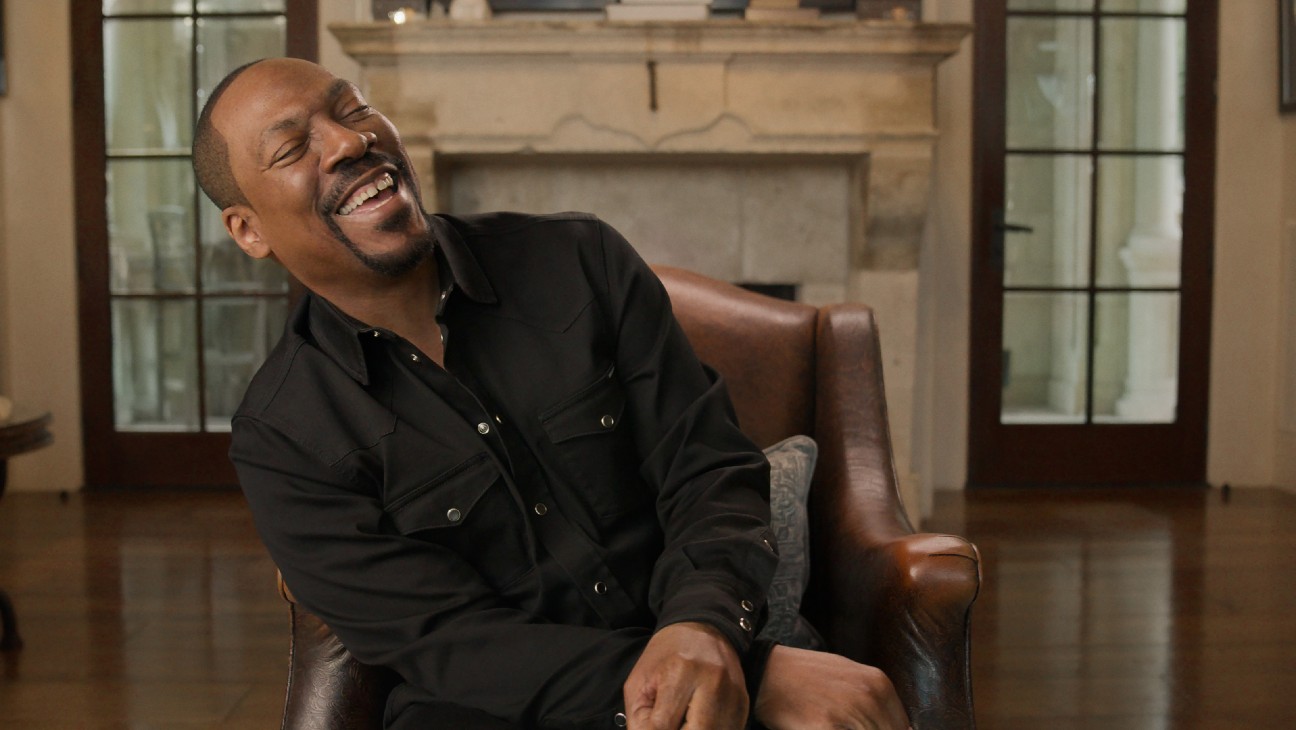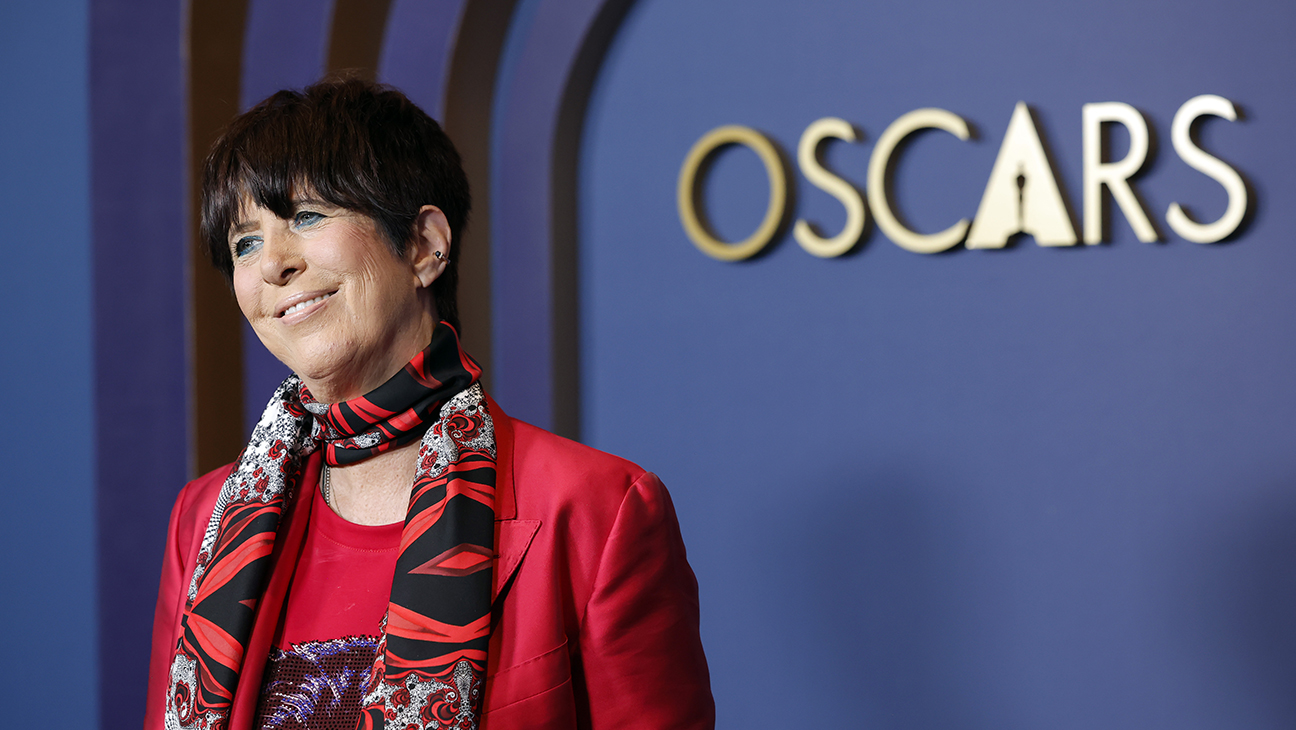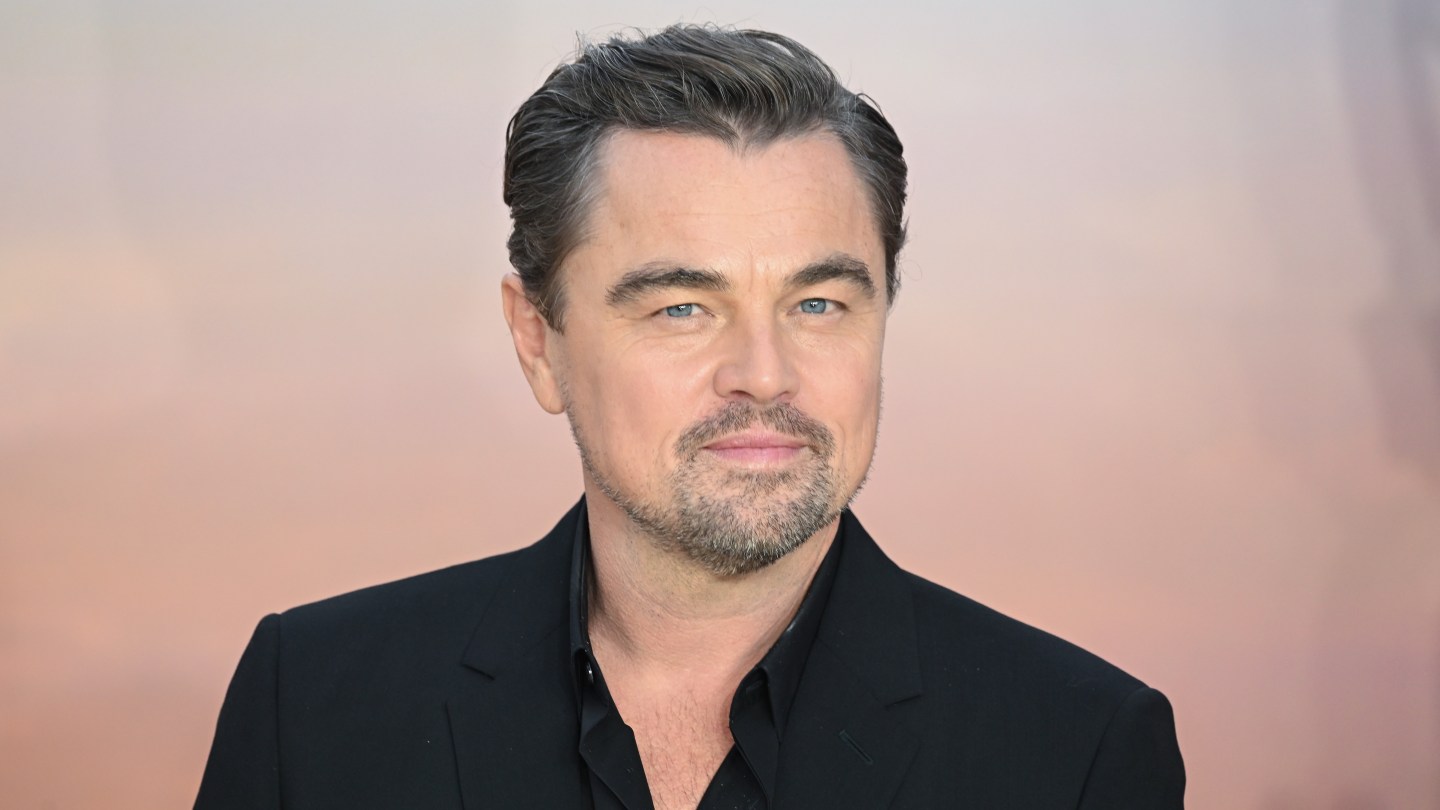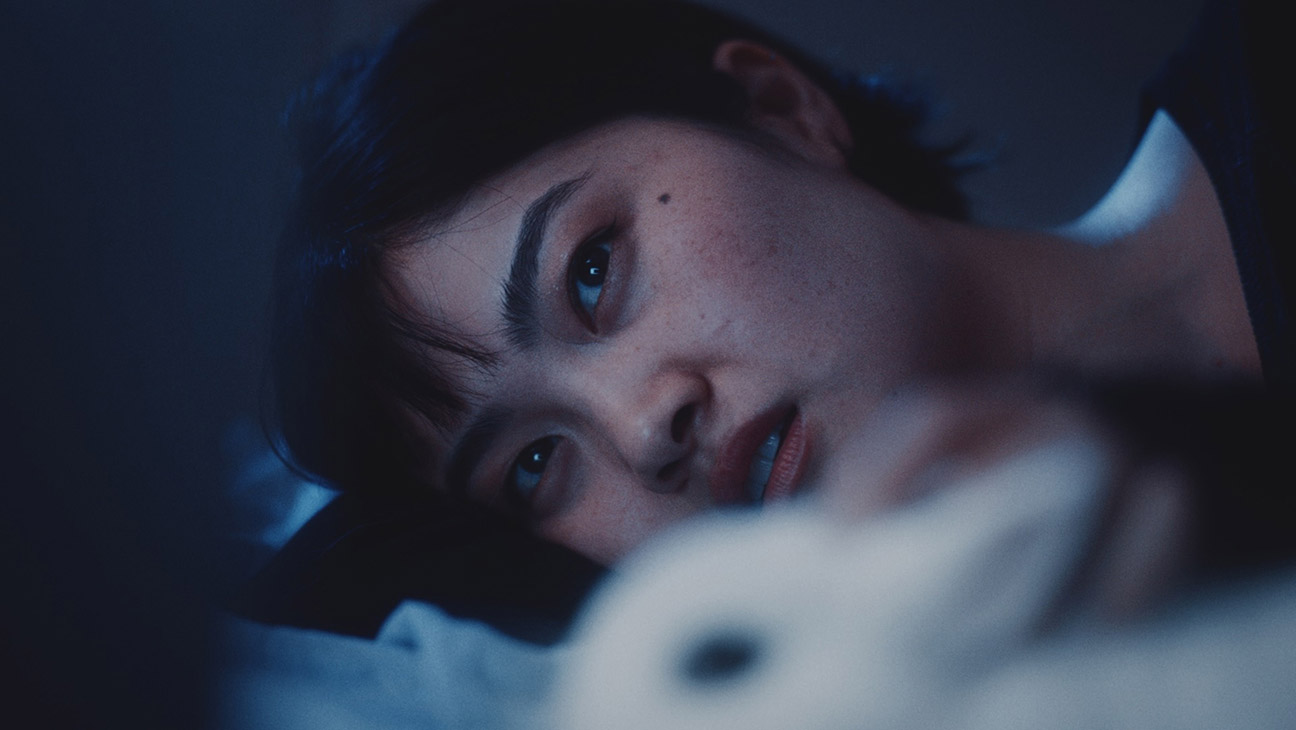In the ’80s and ’90s, few movie titans were bigger than Arnold Schwarzenegger, Sylvester Stallone and Eddie Murphy. The presence of just one of their names on a marquee wasn’t a guarantee of quality, but darned if we didn’t show up anyway. Mostly. Sorry, Last Action Hero, Rhinestone and Vampire in Brooklyn.
It was a pre-social-media age, back when it was possible to feel like you loved a movie star for their aura, without feeling like they were your friend and you might enjoy hanging out with them and sharing a pizza.
Being Eddie
Over-polished and adulatory, but engaging.
In recent years, Netflix has worked hard to correct the perceived aloofness built into being a mega-celebrity, letting these icons descend, however temporarily, from their pedestals.
Putting viewers on a first-name basis right from the start, documentaries like Arnold, Sly and the streamer’s latest, Being Eddie, deliver amiable familiarity, indelible clip packages and a steady stream of real estate porn in the name of convincing us that, provided we avoid or at least soft-pedal certain questionable projects and personal decisions, people like Schwarzenegger, Stallone and Murphy are just like us. Only with far, far nicer homes.
Like its unconnected predecessors — if Netflix were smarter, they could be unified, Monster-style, as an anthology (think Stallone — Nice Guy: The Sylvester Stallone Story) — Being Eddie isn’t a great piece of documentary filmmaking, nor does its DNA include an iota of journalism. What it is, though, is consummately polished and affectionate, taking an actor who rarely seemed vulnerable or especially comfortable in the spotlight at the peak of his stardom and making him seem, for 103 minutes, thoroughly at ease.
Does Being Eddie give the impression that Eddie Murphy is revealing a single thing that he hadn’t decided in advance that he would reveal? Heck no. But he’s so relaxed and likable and “candid” — “candor” is a documentary aesthetic, like “realistic” — that Murphy almost sells himself as a wildly wealthy, wildly brilliant everyman.
Directed by Oscar-winning editor Angus Wall (who will always have a place in my heart as one of the creative forces behind the opening credit sequence for Apple’s Pachinko), Being Eddie smooths over any bumpy patches to deliver a clean arc to Murphy’s life — from Richard Pryor-loving kid to precocious SNL breakout to boundary-breaking movie star to family movie guru to beloved elder statesman, family man and trailblazer. It’s an arc celebrated and illustrated by talking heads ranging from Dave Chappelle, Jerry Seinfeld and John Landis to Jerry Bruckheimer, Jeffrey Katzenberg and Elvis Mitchell.
It wasn’t a life without adversity, but all you can hope for from this documentary is gentle, smiling acknowledgment of a few moments when Murphy’s career went off-track. He chuckles about Vampire in Brooklyn, admits that the timing of Norbit hindered his Oscar hopes for Dreamgirls and recommends to young actors that, while it’s important to play a variety of roles, one should never play a rocket ship (a reference to the otherwise unnamed Meet Dave). He observes that for a handful of years, he stopped acting entirely because of the quality of stuff he was making, but he doesn’t single out Mr. Church or A Thousand Words as a nadir. There isn’t a hint of deep introspection about professional failures or missteps — just a wry amusement that in a multi-decade career, mistakes will be made.
Murphy’s falling out with Saturday Night Live is given slightly less varnished treatment; he admits to the betrayal he felt at David Spade’s notorious “falling star” joke, though he’s careful to place the blame on the show’s creative process and not on Spade. Murphy’s return to SNL for a 2019 hosting stint becomes the documentary’s pivotal sequence, with a number of cast members talking about having him back in the fold and great behind-the-scenes footage of Murphy, Tracy Morgan, Chris Rock and Chappelle just shooting the shit backstage. Then again, it’s odd how much of a documentary released in 2025 pivots around this 2019 moment, but I guess the time gap gave the production opportunities to film Eddie and his happy family at his impressively over-the-top home, which has a bowling alley and an atrium with a retractable roof.
Wall is less interested in delving into bumps in Murphy’s personal road. Honestly, it isn’t the least bit odd that the documentary completely ignores Murphy’s notorious 1997 police stop. Fine. It was overblown then; no need to rehash it here. But it’s somewhat head-scratching that, while Murphy celebrates his current, long-term relationship with Paige Butcher, references to his ’00s divorce treat his ex-wife as an unnamed, marginal figure and not as somebody he was married to for 23 years. It’s one thing not to want to expose your personal life for the world. But when talking heads accentuate how frequently celebrities of Murphy’s magnitude, including many of his idols, flame out in tragic ways, it’s a little disingenuous to simply view Murphy as an introverted star who never drank, never did drugs and avoided the traps of fame as if were all that simple. Instead, we get fun scenes with Murphy hanging out with Paige and some assortment of his kids — he mentions there are 10 of them, but … circumstances therein are not discussed — as a happy resolution to a personal journey the documentary wants to pretend never occurred.
This, I suppose, is the difference between Sly/Arnold/Being Eddie and Netflix’s recent aka Charlie Sheen, which, for fully logical reasons, wallowed in its subject’s misdeeds and, especially in its second half, completely forgot that he had a career at all.
No, you’re gonna wanna watch Being Eddie because when Eddie Murphy wants to be, he’s a spectacular storyteller and, as everybody already knows, an expert mimic. When he reflects on his admiration for Richard Pryor or Muhammad Ali, the pleasure of the moment is contagious. While the primary focus of the documentary is on Eddie Murphy as a wise guru with a 40,000-foot view on comedy, Hollywood and stardom, sometimes Wall gets lucky and Murphy goes off-the-cuff on something utterly random — like his love for MTV’s Ridiculousness, which he sincerely calls the best show on television and compares, in weirdly convincing fashion, to the films of Alejandro Jodorowsky. Moments like that contributed most to my enjoyment of Being Eddie.
At his peak, Murphy often came across in interviews as canned, cantankerous or just uncomfortable, which might be a product of his having to deal with interviewers like Jay Leno. In recent years, though, Murphy has been on a crusade to make himself more approachable on his own terms. He did a great interview with Seinfeld on Comedians in Cars Getting Coffee. Many bigger topics and more obvious targets in his career — from his early career explosion in 48 Hours to the representational triumph of Boomerang — were discussed with Murphy and many of the same talking heads (Jamie Foxx, Reginald Hudlin, Kevin Hart) in recent Apple documentary Number One on the Call Sheet. But none of these pieces of image readjustment have come with the weight of Netflix’s algorithm, or access to Eddie Murphy’s sweet pad.





